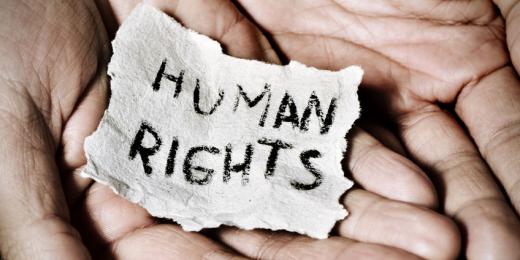Since the introduction of new
Immigration appeal rules in 2014, there has been very little said to elaborate on the concept of a ‘
Human Rights claim’. Although we don’t have definitive answers to all the questions that would help us determine for definite what will and what won’t amount to a
Human Rights claim, the Upper Tribunal has started to address the issues in the recent case of Baihinga.
If your application under the UK
Immigration rules is refused, you can only appeal against this if you fall within the limited circumstances set out in the Nationality
Immigration and
Asylum Act 2002. These circumstances include where
The grounds for appeal in s. 84 of the Nationality
Immigration and
Asylum Act 2002 include the ground that the decision (to refuse the
Human Rights claim) is unlawful under s. 6
Human Rights Act 1998 (s. 84(1)(c)).
If there is a
Human Rights claim, there can be an appeal. The appeal can be on the ground that the decision to refuse the
Human Rights claim breaches the individual’s
Human Rights. So far, so good – but until recently, there has been little elaboration of what a ‘
Human Rights claim’ actually is.
Getting to the heart of what is or isn’t a ‘
Human Rights claim’, and whether a
Human Rights claim has been refused, means looking at several questions.
- Is it enough for a claimant to say ‘this is a
Human Rights claim’ with nothing more to substantiate that?
- If there is no specific mention of ‘
Human Rights’ in a claim, can a refusal of that claim ever be a decision to ‘refuse a
Human Rights claim’ and give a right of appeal?
Although the Upper Tribunal hasn’t answered all these questions clearly, it certainly started to address these important questions in the case of Baihinga (r. 22;
Human Rights appeal: requirements) [2018] UKUT 90 (IAC).
The facts in Baihinga
Juliana Baihinga, a citizen of Sierra Leone, was granted
Indefinite Leave to Remain in the UK in September 2003. She left the UK in 2004 and returned to Sierra Leone to look after her grandmother. Following her grandmother’s death, she applied for entry clearance as a returning resident. Although she did not specifically say that she was making a ‘
Human Rights claim’, her application for entry clearance included the statement that she wanted to come to the UK
"To join the rest of my family, and finish education. Since my grandma passed away in 2013, I have felt lonely without [my family] in the United Kingdom I feel guilty for not supporting my grandmother in her last days... living in the same house still makes me feel even worse". [para 18 of the decision]
The Entry Clearance Officer refused the application. In review, the Entry Clearance Manager agreed with the decision. The First Tier Tribunal decided that there was no ‘refusal’ under s. 82 of the Nationality
Immigration and
Asylum Act 2002, specifically no refusal of a
Human Rights claim, and
“…whilst it is clear that the appellant mentioned her father living in this country and a sister, her application was put on the basis of her being a returning resident and not otherwise.”
Permission to appeal this decision that there had been no ‘refusal’ under s. 82 was initially refused but was then granted on the basis that it was "
arguable that a Human Rights claim was made in this case and that therefore the appellant had a right to appeal".
The Upper Tribunal agreed that, on the facts, this was a ‘
Human Rights claim’. In doing so, it answers the first question posed above – a
Human Rights claim doesn’t have to specifically state that it is in fact a
Human Rights claim. It can be implicit from the circumstances and the information put forward in support of the claim. Although Ms Baihinga made no explicit mention of her Article 8 rights, these were clearly in play given the reasons she gave for her application.
A refusal of an ‘implicit’ claim is still a refusal of a Human Rights claim (probably)
The Upper Tribunal skirted around this issue by looking at what had happened when the Entry Clearance Officer refused the application, and the review carried out by the Entry Clearance Manager. While the ECO made no mention of Ms Baihinga’s Article 8 rights, the ECM did consider the
Human Rights aspect to the case, and the Upper Tribunal felt that these comments could “be seen as casting light on what the entry clearance officer has been doing when she refused the appellants application” [para 36 of the decision].
On this basis, the Upper Tribunal found that there had been a refusal of a
Human Rights claim – and as such, there was a right of appeal. The First Tier Tribunal had made an error of law, and the case was remitted back for a decision on the appeal.
While the Upper Tribunal’s decision doesn’t provide all the answers to the questions about
Human Rights claims, it seems to be a start.
- Whether there is a
Human Rights claim can be implicit from the facts, and
- it’s probably right that if an ‘implicit’
Human Rights claim is refused, this fulfils the s.82 requirements, even if the Entry Clearance Officer doesn’t recognise that he or she is dealing with
Human Rights claim.
We look forward to more clarity as the case law develops!



